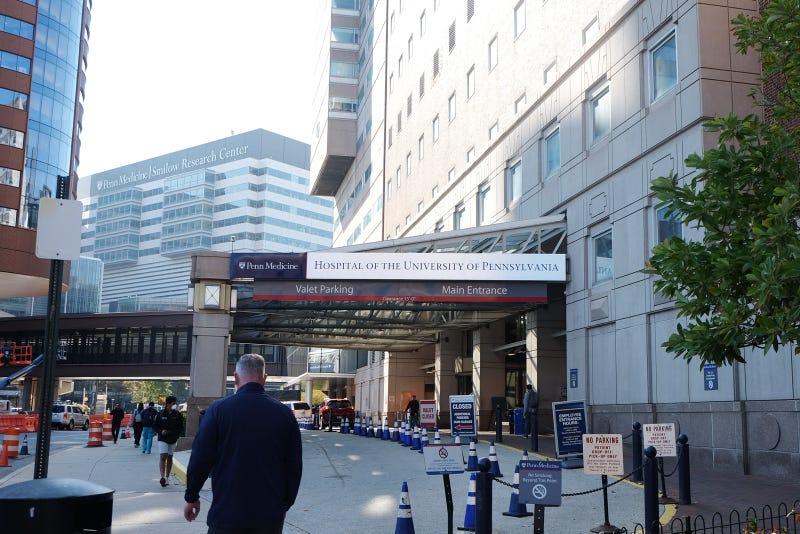
PHILADELPHIA (KYW Newsradio) -- Philadelphia has issued a formal apology for experiments conducted more than 40 years ago at Holmesburg Prison.
The experiments were conducted by Dr. Albert Kligman of the University of Pennsylvania from the 1950s to the 1970s. Inmates were subjected to experiments involving viruses, fungi, pharmaceuticals and poisonous chemicals.
Mayor Jim Kenney says he was horrified when he learned the details of Kligman's conduct.
"Community members brought the situation to our attention," Kenney said. "It was confirmed that those terrible incidents took place between the '50s and the '70s. The most appropriate thing to do was acknowledge that it happened, to apologize and try to do better in our society."
Most of the subjects were Black men awaiting prosecution.
"Whether they were incarcerated or not, they deserved to be treated like human beings," he said. "It's almost reminiscent of Auschwitz and concentration camps, so ... really shocking and horrible, and we wanted to try to bring it to light and say we're sorry as a city for it, and try not to ever let it happen again."
Kenney issued a formal and official apology "without excuse."
"While this happened many decades ago, we know that the historical impact and trauma of this practice of medical racism has extended for generations — all the way through to the present day," the statement read, in part.
"Without excuse, we formally and officially extend a sincere apology to those who were subjected to this inhumane and horrific abuse. We are also sorry it took far too long to hear these words. To the families and loved ones across generations who have been impacted by this deplorable chapter in our city’s history, we are hopeful this formal apology brings you at least a small measure of closure. Recognizing the deep distrust experiments like this have created in our communities of color, we vow to continue to fight the inequities and disparities that continue to this day."
Penn issued their own apology for Kligman's experiments last year.
Racial disparities still exist in medicine for a myriad of reasons — from lack of access and insurance to a general mistrust of doctors, dating back to the 19th century, when physicians performed painful experimental surgeries on enslaved Africans.
Those disparities create barriers to accessing proper health care, says Dr. Delana Wardlaw, a family physician with Temple Health. Studies have shown that minorities are less likely than whites to have a primary care physician, yet minority groups carry a disproportionate burden of many health conditions, such as high blood pressure, diabetes and heart disease.
KYW Newsradio's Racquel Williams contributed to this report.

